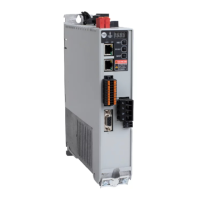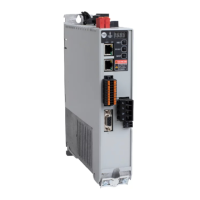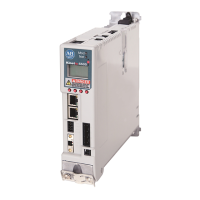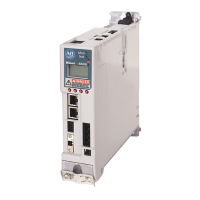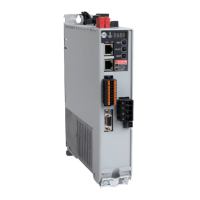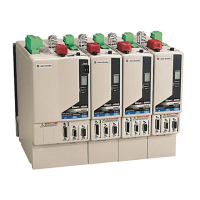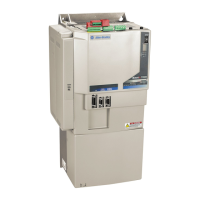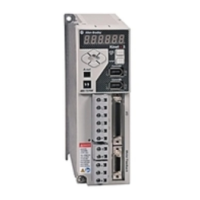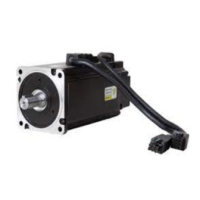262 Rockwell Automation Publication 2198-UM002L-EN-P - October 2021
Chapter 7 Troubleshoot the Kinetix 5700 Drive System
Axis Troubleshooting These conditions do not always result in a fault code, but can require
troubleshooting to improve servo drive performance. For general iTRAK
troubleshooting, see iTRAK System with TriMax Bearings User Manual,
publication 2198T-UM002
, or iTRAK 5730 System User Manual, publication
2198T-UM003
.
Table 134 - Axis Troubleshooting
Condition Potential Cause Possible Resolution
Axis or system is unstable.
The position feedback device is incorrect or open. Check wiring.
Unintentionally in Torque mode. Check to see what primary operation mode was programmed.
Motor tuning limits are set too high. Run Tune in the Logix Designer application.
Position loop gain or position controller accel/decel rate is
improperly set.
Run Tune in the Logix Designer application.
Improper grounding or shielding techniques are causing noise to
be transmitted into the position feedback or velocity command
lines, causing erratic axis movement.
Check wiring and ground.
Motor Select limit is incorrectly set (servo motor is not matched to
axis module).
•Check setups.
• Run Tune in the Logix Designer application.
Mechanical resonance.
• Notch filter or output filter can be required (refer to Axis Properties
dialog box, Compliance tab in the Logix Designer application).
• Enable adaptive tuning. See Adaptive Tuning
on page 438 for more
notch filter information.
You cannot obtain the motor
acceleration/deceleration
that you want.
Torque Limit limits are set too low. Verify that torque limits are set properly.
Incorrect motor selected in configuration.
Select the correct motor and run Tune in the Logix Designer
application again.
The system inertia is excessive.
• Check motor size versus application need.
• Review servo system sizing.
The system friction torque is excessive. Check motor size versus application need.
Available current is insufficient to supply the correct accel/decel
rate.
• Check motor size versus application need.
• Review servo system sizing.
Acceleration limit is incorrect. Verify limit settings and correct them, as necessary.
Velocity Limit limits are incorrect. Verify limit settings and correct them, as necessary.
The motor is operating in the field-weakening range of operation. Reduce the commanded acceleration or deceleration.
Motor does not respond to a
command.
The axis cannot be enabled until stopping time has expired.
Disable the axis, wait the configured stopping time, and enable the
axis.
The motor wiring is open. Check the wiring.
The motor cable shield connection is improper.
• Check feedback connections.
• Check cable shield connections.
The motor has malfunctioned. Repair or replace the motor.
The coupling between motor and machine has broken (for example,
the motor moves, but the load/machine does not).
Check and correct the mechanics.
Primary operation mode is set incorrectly. Check to see what primary operation mode was programmed.
Velocity or torque limits are set incorrectly. Check and properly set the limits.
Brake connector not wired Check brake wiring
Presence of noise on
command or motor feedback
signal wires.
Recommended grounding per installation instructions have not
been followed.
• Verify grounding.
• Route wire away from noise sources.
• Refer to System Design for Control of Electrical Noise, publication
GMC-RM001
.
Line frequency can be present.
• Verify grounding.
• Route wire away from noise sources.
Variable frequency can be velocity feedback ripple or a
disturbance caused by gear teeth or ballscrew, and so forth. The
frequency can be a multiple of the motor power transmission
components or ballscrew speeds resulting in velocity disturbance.
• Decouple the motor for verification.
• Check and improve mechanical performance, for example, the
gearbox or ballscrew mechanism.
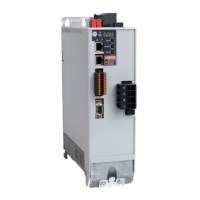
